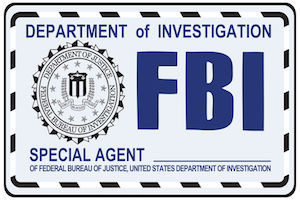 Many people do not understand the difference between state law criminal charges and federal criminal charges in Tulsa, Oklahoma. State law criminal charges are brought when a person is suspected of violating a state criminal law, while federal criminal charges are brought when a person is suspected of violating federal criminal law.
Many people do not understand the difference between state law criminal charges and federal criminal charges in Tulsa, Oklahoma. State law criminal charges are brought when a person is suspected of violating a state criminal law, while federal criminal charges are brought when a person is suspected of violating federal criminal law.
Both Oklahoma and the United States have specific criminal statutes, and both have criminal courts. In general, it is considered to be most serious when a person is accused of violating federal criminal law.
Oklahoma has three Federal Court Districts (Eastern, Western, and Northern). The Western District files the most cases (59%) followed by the Northern (32%). There is some overlap in the types of crimes charged in federal court, but many federal statutes cover specifically federal matters. And like state criminal courts, federal criminal courts have their own judges and juries.
Common Federal Charges
Drugs
It may come as no surprise that federal law covers illegal drugs. Drug crimes comprise 39.1% of all charges filed in federal court. Just as in the state of Oklahoma, it is a federal crime to possess, use, or distribute illegal drugs.
However, while simple possession of an illegal drug is now a misdemeanor in Oklahoma, simple possession in a federal court can result in up to a year in prison and a fine of up to $1,000 for a first offense. A second conviction can result in up to 2 years in prison and up to $2,500 in fines. 21 US Code § 844
In addition, federal law provides for enhanced prison terms of the possession of certain substances such as flunitrazepam, a powerful hypnotic drug that is a benzodiazepine derivative often used in date rape cases.
Penalties for drug trafficking convictions depend on the type of drug involved. Federal drug trafficking is defined as manufacturing, possessing with the intention to dispense, manufacturing, or distributing any amount of an illegal drug. Penalties depend in part of the type of drug involved and the amount of the drug that is involved and can run from five years to life imprisonment. 21 US Code § 841
Firearms
Federal firearms laws include various types of infractions and cases alleging violations comprise 17.2% of all federal cases filed. One of the most common concerns people who are prohibited from legally possessing a firearm and transporting it across state lines. These people include: felons; drug users or addicts; people who are subject to a domestic restraining order or who have prior convictions for domestic assault; illegal aliens and aliens who have been lawfully admitted under non-immigrant visas; fugitives from justice; and anyone who has been dishonorably discharged from military service. It is also illegal to give or dispose of any firearm to such a person. 18 US Code § 922
Firearms violations carry stiff penalties. Many possession charges carry prison terms of up to 10 years.
Federal firearms violations are often coupled with violations of other federal laws. For example, firearms violations are often coupled with drug possession and trafficking charges.
When coupled with either a drug felony or in the furtherance of another violent crime, an offender could face anywhere from five years to life in prison without parole or the death penalty if a death occurs as a result. 18 US Code § 924
Immigration
Immigration violations are also often charged in federal court and comprise 8.5% of all cases. These crimes vary and include everything from illegal entry into the United States, to attempted entry, to eluding immigration officers. These cases are misdemeanors and are punishable by fines and imprisonment — up to six months for a first offense or up to two years for a subsequent conviction. 8 US Code § 1325
Green card marriages are also illegal, but the penalties are stiffer. If you knowingly enter into a green card marriage, you are in essence, lying to the government. And if caught, you could face up to five years in prison and a fine up to $250,000.
These cases are increasing in number.
Other Common Federal Crimes
Other common federal crimes include: traffic offenses for traffic violations on federal property (7.3%); sex offenses such as child pornography (4.3%); general offenses such as white collar crimes and destruction of federal property (4.4%); fraud such as mail fraud and identity theft (4%); regulatory offenses such as violations of federal agency rules and regulations (3.1%); assault (3%); and burglary (3%).
Federal crimes tend to carry stiffer sentences, harsh fines, and strict terms even after release from prison. If you have been charged with a federal crime, you will need the help of a Tulsa criminal attorney who is knowledgeable about federal law and the federal court system.
Initial Consultation: Tulsa Federal Criminal Defense Attorney
Get the help you need. It’s time to retain a Tulsa criminal defense lawyer who is knowledgeable regarding federal law and procedure and who will look out for your legal interests. Contact a Tulsa federal criminal defense attorney at Tulsa Criminal Defense Law Firm today for a initial, confidential consultation.
A Tulsa federal criminal defense attorney can advise you on how the process works and offer answers to your specific questions. To begin your low-cost initial strategy session, call 918-256-3400 now.

 If you are new to federal charges, it can be important to understand the differences between state and federal courts. Both have their own sets of laws and sometimes those laws conflict. Both have different rules regarding jurisdiction and procedure. And these differences can sometimes help build a strong defense to a criminal matter if you have been arrested in Oklahoma.
If you are new to federal charges, it can be important to understand the differences between state and federal courts. Both have their own sets of laws and sometimes those laws conflict. Both have different rules regarding jurisdiction and procedure. And these differences can sometimes help build a strong defense to a criminal matter if you have been arrested in Oklahoma. Federal prosecutors have many tools available to them. One such tool is a grand jury target letter. This is a letter that a federal prosecutor sends out to the target of an investigation. It tells the recipient of the letter that they are under investigation for having violated one or more federal crimes. If you or a loved one have received a federal grand jury target letter in Tulsa, Oklahoma here is what you need to know.
Federal prosecutors have many tools available to them. One such tool is a grand jury target letter. This is a letter that a federal prosecutor sends out to the target of an investigation. It tells the recipient of the letter that they are under investigation for having violated one or more federal crimes. If you or a loved one have received a federal grand jury target letter in Tulsa, Oklahoma here is what you need to know. Federal courts mandate certain minimum sentences for some crimes.
Federal courts mandate certain minimum sentences for some crimes.  Federal Indictments: A Serious Matter
Federal Indictments: A Serious Matter